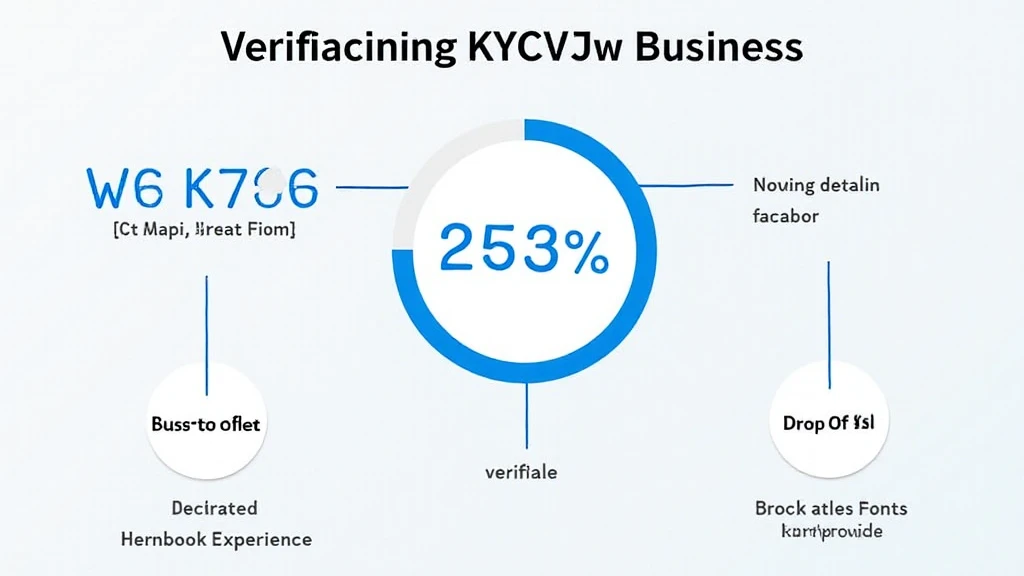Top Metrics for KYC Verification Success in Africa’s Crypto Business
With the global cryptocurrency market projected to reach $4.1 trillion by 2025, KYC verification becomes increasingly critical, especially in Africa where the market is expanding rapidly. The continent is witnessing a surge in cryptocurrency adoption, making it essential for businesses in the sector to implement effective KYC (Know Your Customer) processes. What are the success metrics for KYC verification in the African crypto landscape? Let’s break it down.
Understanding KYC in the African Crypto Market
KYC is a process to verify the identities of clients. In Africa, where many users are new to cryptocurrency, understanding KYC is crucial for reducing fraud and ensuring compliance with local regulations. According to recent studies, 60% of African crypto users prefer platforms that offer robust KYC processes, underscoring the importance of consumer trust.
KYC Verification Success Metrics
Here are some of the key metrics to measure KYC verification success in the African crypto business:

- Completion Rate: This is the percentage of users who successfully complete the KYC process after starting it. A high completion rate indicates that your process is user-friendly.
- Verification Time: The average time taken to verify a user’s identity. Shorter verification times lead to higher user satisfaction.
- Drop-Off Rate: The percentage of users who begin but do not complete the KYC process. A high drop-off rate can point to friction in your verification process.
- User Retention Rate: This measures how many users return to the platform after completing KYC. A higher retention rate indicates successful user engagement.
- Fraud Detection Rate: The percentage of fraudulent accounts identified through KYC processes. This metric is crucial for reducing financial crime.
The Importance of User Experience
Implementing an efficient KYC process is essential in Africa, where the crypto user base is diverse. User experience should be at the forefront of KYC strategies. A smooth, engaging KYC process can lead to increased user trust and a more significant market share.
As a real-world analogy, think of KYC like a bank entrance — the smoother the entrance, the more customers will step inside. If users are met with obstacles, like overly complex forms, they’re likely to walk away. Here’s how you can optimize the user experience:
- Use simple language and clear instructions.
- Incorporate mobile-friendly interfaces, as a significant number of African users access the internet via mobile devices.
- Provide support via chat or a helpline during the KYC process to assist users who may face difficulties.
Local Market Insights
In the African market, the demand for cryptocurrency is surging. According to a report by Chainalysis in 2023, the average growth rate of crypto users in Africa has increased by 128% year-on-year. This rapid growth presents unique challenges for KYC processes, as businesses must adapt to a diverse clientele.
Vietnam’s Approach
Comparatively, Vietnam has also embraced blockchain technology, emphasizing cybersecurity and regulatory compliance. Key standards in blockchain security, or tiêu chuẩn an ninh blockchain, can provide valuable insights for African markets, reinforcing the importance of secure transactions.
Case Study: Successful KYC Implementation in Africa
Consider the case of a leading crypto exchange in Nigeria which improved its KYC process. By focusing on user-friendly design and faster verification times, they reduced their drop-off rate by 30%. Key strategies included:
- Integrating AI to automate background checks, cutting verification times from 48 hours to just 2 hours.
- Offering multilingual support — crucial for accommodating the diverse demographic across Africa.
- Regularly updating their KYC policies to reflect changing regulations, ensuring compliance while building user trust.
Effective KYC Audits and Smart Contracts
When auditing smart contracts, clarity is crucial. The integration of smart contracts can provide a seamless KYC verification process, automating identity verification while protecting users’ data. For businesses asking how to audit smart contracts, following industry standards and utilizing established tools is paramount.
Incorporating audits regularly can help identify potential vulnerabilities, ensuring that KYC processes remain secure and reliable.
Future of KYC in Africa’s Crypto Business
Going forward, the future of KYC in Africa’s crypto business looks promising. Innovations are likely to emerge, with an increase in the adoption of biometric verification techniques. Keeping up with technology trends will be vital for crypto businesses looking to thrive in this burgeoning market.
As regulations evolve, businesses should anticipate changes in compliance requirements. Continuous training and development for teams involved in KYC processes will ensure that they remain ahead of the curve.
Conclusion
In conclusion, KYC verification is a cornerstone for the success of crypto businesses in Africa. By focusing on key performance metrics such as completion rates, verification times, and user retention, crypto platforms can effectively navigate the complex landscape of KYC compliance. As the crypto market continues to grow, investing in thorough KYC processes will pay off in the trust and security it builds with users. Remember, smooth KYC processes lead to increased user engagement. For more insights, stay updated with cryptobestnews.
Author: Dr. Alex Smith
Dr. Alex Smith is a blockchain compliance expert who has authored over 15 publications on cryptocurrency regulation and KYC processes. He has led significant audits for notable crypto projects across Africa and is a respected voice in the blockchain community.


